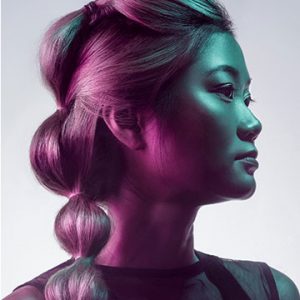"Greg" writes:
I thought the intent of Bruce Lindbloom’s web page
was to show that none of the algorithms are actually fully accurate. He doesn’t mention
viewer adaptation, human perception, or scene spectra. This is all I want – a plug-in
which does the calculations exactly, as Bruce has done on this web page: http://www.brucelindbloom.com/ChromAdaptEval.html
Ah, now it becomes clear. Bruce Lindstrom isn’t talking about chromatic adaptation at all; he’s talking about simulating the physical effects of different illumination. A very different, and perhaps simpler, problem. Of course it can’t be done exactly from RGB or any 3-channel color representation, as spectral information has been lost. I suppose he shows some reasonable ways to estimate the shifts involved. None, however, is "exact", as he points out:
You can also see that the adaptation [sic] is only an approximation to the true value, and that this approximation is worse when the two reference illuminants are very different from each other.
"Chromatic adaptation" refers to how the human visual system adapts to a particular illuminant so that the colors all work out more or less independent of illumination. This is why we can work under a variety of illumination; if there were no chromatic adaptation, incandescent lighting would make everything look terribly orange, or daylight would make everything very bluish. We have different white balance settings on digital cameras, and daylight color correction filters, and ungsten and daylight versions of color film, because the technology doesn’t adapt. And that’s what Chris and I mean by "chromatic adaptation".
You’re trying to answer the question, "What would this look like to the camera if it were lighted by a different source?", but Chris and I were talking about what it would look like to a *human observer* under a similar change.
"Stephen H. Westin" <westin*> wrote in message Chris Cox writes:
In article <401af90e$>, Greg
wrote:
I note with interest from Bruce Lindloom’s site that none of the
standard
whitepoint adaptation algorithms are
exact. I assume this is because it would just be too taxing on our
systems
to do the conversion exactly.
No, it means that we don’t know exactly how the human visual system compensates for whitepoint changes.
The only way to do it "exactly" is to have spectral data for the scene and the light source.
And, ov course, knowledge about the environment around the monitor so we can take observer adaptation into account. :).
—
-Stephen H. Westin
Any information or opinions in this message are mine: they do not represent the position of Cornell University or any of its sponsors.

